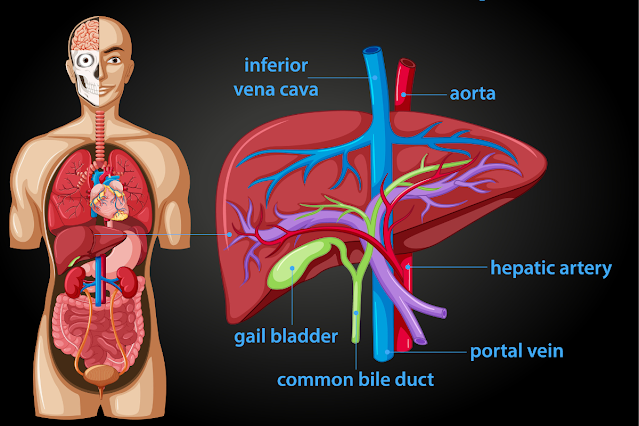In recent years, the prevalence of fatty liver disease has been on the rise, posing a significant health concern for both men and women. However, it's essential to understand that fatty liver symptoms in females can differ from those in males due to various biological and hormonal factors. In this comprehensive guide, we will explore the symptoms of fatty liver, what fatty liver is, and dive into its treatment and self-care measures specifically tailored for women.
What Is Fatty Liver?
Before delving into the symptoms, let's grasp the basics. Fatty liver, medically known as hepatic steatosis, is a condition characterized by the accumulation of excess fat in the liver cells. This buildup can impair liver function and lead to various health issues.
Symptoms of Fatty Liver
Fatigue and Weakness (H1): One of the early signs of fatty liver in females is a persistent feeling of tiredness and weakness. This can interfere with daily activities and productivity.
Abdominal Discomfort (H1): Many women with fatty liver experience discomfort or pain in the upper right abdomen, where the liver is located.
Unexplained Weight Loss (H1): Sudden and unexplained weight loss can be an alarming symptom, signaling liver problems.
Jaundice (H1): In some cases, jaundice, which causes yellowing of the skin and eyes, may occur due to liver dysfunction.
Fatty Liver Disease Treatment
Managing fatty liver is crucial to prevent its progression into more severe liver conditions. Here are some treatment options:
Lifestyle Changes (H2)
Making healthy lifestyle adjustments is often the first line of defense against fatty liver disease.
Dietary Modifications (H3): Adopting a balanced diet low in saturated fats and sugars can help reduce fat buildup in the liver. Incorporate more fruits, vegetables, and whole grains into your meals.
Regular Exercise (H3): Engaging in regular physical activity can aid in weight management and improve overall liver health.
Limit Alcohol Intake (H3): Women should be particularly cautious about alcohol consumption, as it can exacerbate liver problems.
Medications (H2)
- Prescription Medications (H3): In some cases, healthcare providers may prescribe medications to manage specific aspects of fatty liver disease.
Medical Procedures (H2)
- Liver Biopsy (H3): A liver biopsy may be performed to assess the extent of liver damage and guide treatment decisions.
Fatty Liver Disease Self-Care
Monitor Your Diet (H2): Keep a food diary to track your meals, ensuring you follow a liver-friendly diet.
Stay Hydrated (H2): Drinking an adequate amount of water helps flush toxins from the body and supports liver function.
Regular Check-ups (H2): Schedule regular visits to your healthcare provider for liver function tests and monitoring.
Conclusion
In conclusion, fatty liver symptoms in females should not be ignored, as early detection and intervention are key to preventing complications. By adopting a healthy lifestyle, seeking medical advice, and following a tailored treatment plan, women can manage fatty liver disease effectively.
FAQs
Is fatty liver more common in women than men? No, fatty liver can affect both men and women, but the symptoms and progression may vary.
Can fatty liver disease be reversed through diet and exercise alone? In some cases, lifestyle changes can improve liver health, but it's essential to consult a healthcare professional for personalized guidance.
Are there specific foods that women with fatty liver should avoid? Yes, foods high in saturated fats, sugars, and processed foods should be limited. A balanced diet is crucial.
Is fatty liver disease hereditary? While genetics may play a role, lifestyle factors like diet and exercise have a more significant impact on its development.

No comments:
Post a Comment
Please do not enter any spam link in the comment box